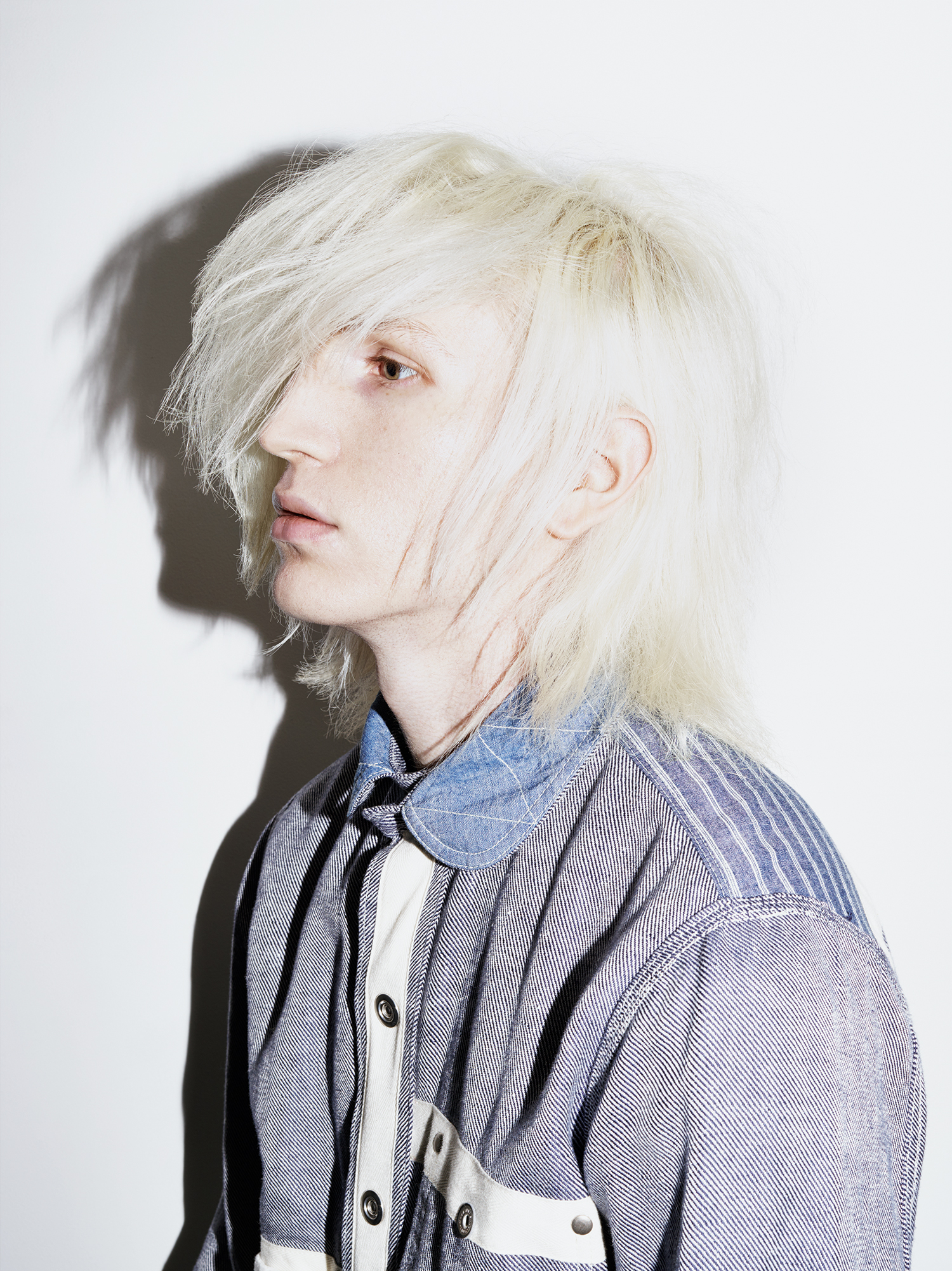Purple Magazine
— S/S 2014 issue 21
Junya Watanabe
 Junya Watanabe
Junya Watanabe
interview by OLIVIER ZAHM
portrait by JUNJI HATA
photography by FREDERIKE HELWIG
One of the world’s most creative and high-tech fashion designers lives in Tokyo and rarely speaks to the press.
OLIVIER ZAHM — You started your own company more than 20 years ago. Can you tell us about your personal evolution in relation to the transformation of fashion?
JUNYA WATANABE — Let me correct you. It is not my company. It is Rei Kawakubo’s company and I work in it. As for my personal evolution, I think it has not been isolated from the overall transformation of fashion. I feel that my technique has certainly developed, but that doesn’t necessarily mean a positive change. With the surrounding situation, to be honest, I sometimes feel that it is very difficult to create something outstanding and interesting these days.
-

Beige suede laser-cut top, fringed pants, and studded python ankle boots JUNYA WATANABE
-

Long beige suede coat over fringed pants with studded python ankle boots JUNYA WATANABE
-

Orange cotton and polyester coat over a white checked cotton shirt JUNYA WATANABE
